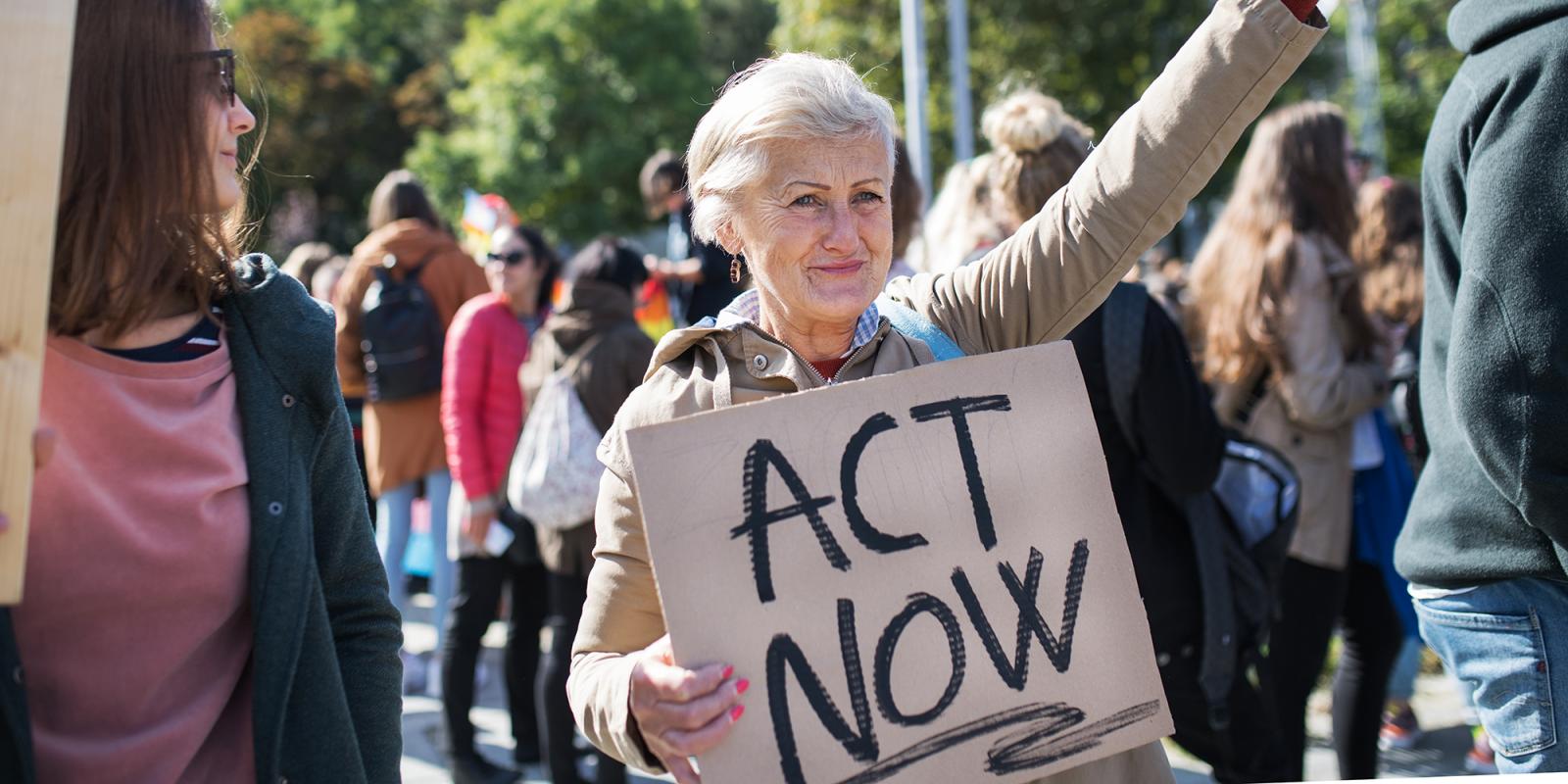At the height of our country’s racial reckoning, Americans were extraordinarily generous in donating money to social justice causes. According to the online giving platform Benevity, in 2020 51 percent of all giving, or $166 million, was directed to racial and social justice nonprofits.
One year later and that number is now down to just over 5 percent. What happened? Do we too easily forget? Do we only react in the face of tragedy? Or is it a matter of attention span, and Americans are busy giving to the next tragedy—hurricane, flood or fire—instead?
When it comes to older adult-related causes, philanthropic giving has never been high. According to Candid (a leading source of information on philanthropy), less than 1 percent of the most significant grants given by America’s largest foundations go to causes related to aging. Will funding for aging suffer the same consequences as did social justice funding? Can it go lower than 1 percent?
And pre-pandemic spending by the federal government on older adult policies was already waning under the Trump Administration, decreasing from $2 billion in 2017 to $1.8 billion in 2019.
Despite years of underfunding and ignoring much-needed investments, it took the shock of nearly half a million older adults dying from a pandemic for the federal government to act. Adults older than age 65 account for more than 80 percent of the deaths due to COVID-19.
In May 2020, $4.9 billion went to help skilled nursing facilities; and $955 million to ACL to support older adults living in the community. Then in late Dec. 2020 President Trump signed the Consolidated Appropriations Act, which included $175 million in emergency funding for senior nutrition programs and $100 million in emergency funding for the ACL to address abuse, neglect and exploitation of older adults.
But going forward, we can have a huge impact. For all of us in aging, we now have a historic opportunity to act on what is arguably the largest investment in aging-related causes since 1965, when the Older Americans Act was first passed. It has been nearly five decades since a President has set his sights so squarely on infrastructure that will improve the lives of older adults.
The ACL is requesting more than $3 billion, an increase of $750 million over the FY 2021 enacted budget for older adults and people with disabilities.
Some details that affect aging:
+ $389.6 million for home- and community-based services;
+ $1.5 million for preventive health;
+ $2.9 million for aging network support activities;
+ $15.3 million for Aging Disability Resource Services;
+ $87 million expanded focus on caregiving;
+ $41.2 million to equity causes such as Native American nutrition and elder justice.
But as aging advocates we can’t sit on the sidelines and hope these numbers will become reality—the stakes are too high. We can’t let the tragedy of COVID-19 be so quickly forgotten. We have to let members of Congress know, loud and clear, that these investments are necessary to repair the damage done by COVID-19, and to prevent future tragedies.
Here are three actions all ASA members can take right now:
- Call or email elected officials at the local and state level about why they need to make some noise and encourage federal officials to support the Biden budget.
- Call or email Reps. Rosa DeLauro (D-CT) and Kay Granger (R-TX) and Sens. Bernie Sanders (D-VT) and Lindsey Graham (R-SC), who chair the Budget and Appropriations committees. They’re in charge of the federal budget. Tell them investing in older adults isn’t just the right thing to do, but it’s also popular among their constituents.
- Submit a letter or OpEd to your local newspaper explaining these numbers, and why it’s so critical that they talk about this, and feel free to use this note for inspiration.
As we begin to emerge from what was one of the worst years in recent memory, we can’t afford to forget those who were lost, whether to violence or the ravages of the pandemic. And we can’t let the funding to social justice or aging slip, either—we must continue to fight and push for every dollar.
Peter Kaldes is the President and CEO of the American Society on Aging.













